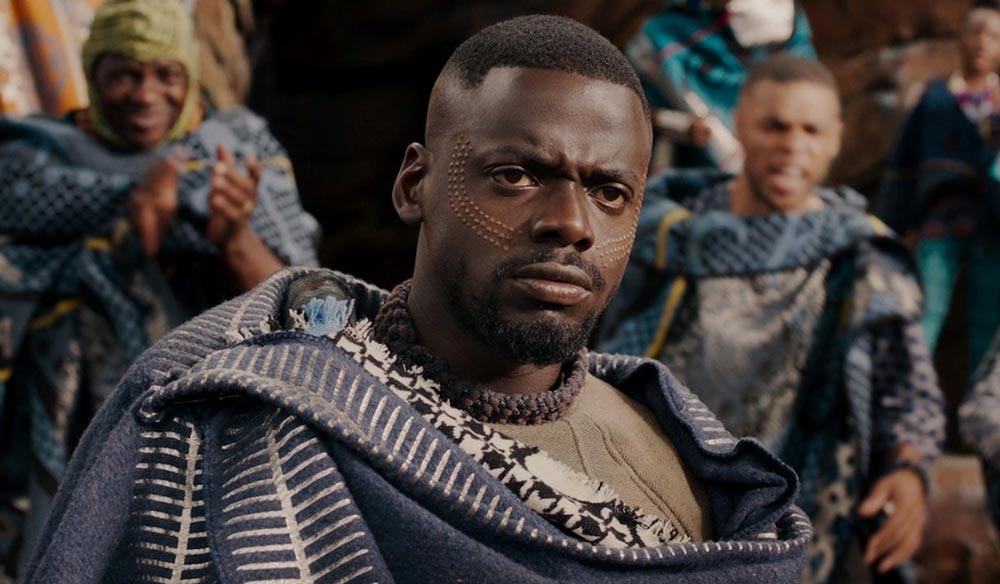
For the proud Ugandan movie enthusiasts, the name Daniel Kaluuya is firm on your lips. The Ugandan-British actor, famously known for his role in Jordan Peele’s psychological horror film Get Out, has been honoured with a statue in London’s Leicester Square, becoming the latest Black film star to receive this prestigious tribute.
While the statue is a powerful tribute to his career, it also marks a deeper significance. It highlights how far Kaluuya has come, and by extension, the broader conversation about race, identity and diversity in film.
From humble beginnings in London, this talented actor has skyrocketed to global fame, delivering powerful performances that span genres and cultures. Best known for his breakout role in Get Out, a film that not only solidified his place in Hollywood but also sparked critical conversations about race, identity, and society, Kaluuya’s journey from the British drama Skins to Oscar-winning performances is nothing short of inspiring—a testament to his undeniable talent and relentless ambition. Now, as a statue is unveiled in his honour, it serves as a testament to his monumental contributions to cinema, culture, and representation.
Thus, in a powerful gesture of recognition, Daniel Kaluuya’s likeness has been immortalised in one of London’s most iconic locations: Leicester Square. Known for its red-carpet events and film premieres, the square is now the proud home of Kaluuya’s statue, celebrating his remarkable journey from London’s streets to Hollywood’s finest stages.
The Daniel Kaluuya statue in London is not just about paying tribute to a talented actor; it is about the deeper significance of representation and how far he has come. The statue’s unveiling during the UK’s Black History Month adds an extra layer of meaning, as it highlights both his success and the broader cultural impact of his work. As the first Black actor to be honoured in this way, Kaluuya stands not only as a figure of cinematic excellence but as a symbol of progress within the film industry, which has long been criticised for its lack of diversity.
On that note, Kaluuya’s story is one of grit, perseverance, and talent. Born in London to Ugandan parents, Kaluuya’s roots in his Ugandan heritage have always remained a cornerstone of his identity, often cited in interviews and speeches. As he said during his Oscar acceptance speech for Judas and the Black Messiah,
“My family is from Uganda. I come from a big Ugandan family; it is no joke; my mum is one of 22 kids and my dad is one of 49…”
This pride in his African roots has been an essential part of his public persona, adding an extra layer of depth to his performances.
Daniel Kaluuya’s career began with a humble start as a writer and actor in the British teen drama Skins. It was here that his raw talent was first discovered, earning him early recognition in the UK. But it was Get Out (2017) that truly catapulted him to international stardom. As Chris Washington in the film, Kaluuya gave a mesmerising performance as a young Black man whose visit to his white girlfriend’s family exposes dark secrets. The film was a critical and commercial success, grossing over £190 million worldwide, and it earned Kaluuya an Academy Award nomination for Best Actor, making him one of the youngest actors in history to be recognised for such a prestigious honour.
Kaluuya’s success didn’t stop there. He went on to appear in Black Panther, the cultural phenomenon directed by Ryan Coogler, and Judas and the Black Messiah (2021), where his portrayal of Black Panther leader Fred Hampton won him the Academy Award for Best Supporting Actor. These performances solidified his place as one of Hollywood’s most versatile actors, known for tackling challenging roles that often reflect his commitment to diversity and social justice.
The Daniel Kaluuya statue in London’s Leicester Square stands as a tribute to more than just his exceptional talent. It is a reminder of how far the film industry has come in terms of diversity, representation, and storytelling. For Kaluuya, it marks a significant milestone in an already illustrious career.
For the rest of us Ugandans and cinema lovers alike, it is a symbol of hope—a beacon that tells us that talent, passion, and perseverance will always prevail, regardless of the obstacles.